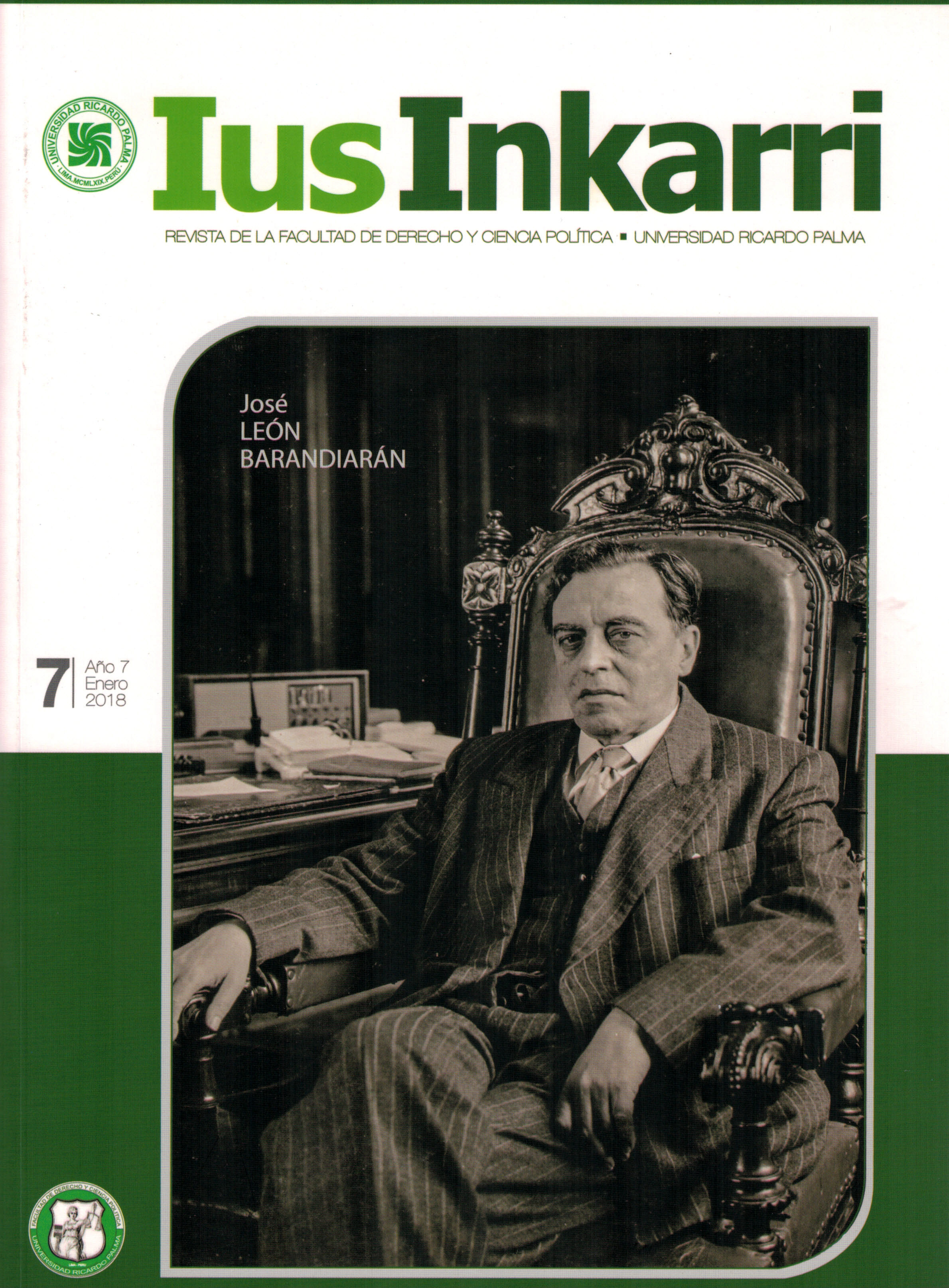The dangerous overthrow of legal languaje
DOI:
https://doi.org/10.31381/iusinkarri.vn7.2019Keywords:
gender ideology, justice, legal science, linguistics, law, legal morality, metaphysics, postmodernity, post-thruth, revolution, terrorismAbstract
This paper deals with the relationships between Language and Legal Science. The first part explores the incongruities of the post-Thruth; the second part recalls that the Law must be claimed as an expression of Legal Science. Then the fundamental links between language and juridicity are demonstrated, concluding that this relationship is not only instrumental, but a foundation of substantive Law in itself. Along these lines, we propose a reading of reality in times of postmodernity and the danger of the tendency to overturn the semantics and etymology of crucial terms such as revolution, terrorism and gender ideology, undermining the foundations of Law, which constitutes a threat in the search for the supreme ends of this discipline with respect to the order and the harmonious and peaceful structuring of the society and the empire of effective justice and the metaphysical justification. The conclusion offers an alternative control from the Legal Moral.
Downloads
References
ALCHOURRON, Carlos y BULYGIN, Eugenio, Introducción a la metodología de las ciencias jurídicas y sociales, Astrea, Buenos Aires, 1975.
AUSTIN, John L., Cómo hacer cosas con palabras: Palabras y acciones (How to Do Things with Words), Paidós, Barcelona, 1982.
DEVLIN, Patrick, The Enforcement of Morals, Oxford University Press, Oxford, 1965.
DÍAZ, Elías, De la maldad estatal y la soberanía popular, Editorial Debate, Madrid, 1984.
ELSTER, Jon, Closing the books: Transitional justice in historical perspective, Cambridge University Press, Cambridge, 2004.
GOLTZBERG, Stefan, L’argumentation juridique, 2ª ed., Dalloz, París, 2015.
GRAYLING, A.C., Democracy and its crisis. An urgent exploration of the challenges facing democracy today, Kindle edition, 2017.
GOLDSCHMIDT, Werner, Introducción filosófica al Derecho, 4ª ed., Buenos Aires, Depalma, 1973.
HABA, Enrique P., “Kirchmann sabía menos... ¡Pero vio mejor!”, en: Doxa. Cuadernos de Filosofía del Derecho, N° 14, Alicante, 1993.
NINO, Carlos Santiago, Introducción al análisis del Derecho, 2ª ed., Astrea, Buenos Aires, 1980.
KELSEN, Hans, El método y los conceptos fundamentales de la Teoría Pura del Derecho, versión del alemán del original de 1911 por Luis Legaz Lacambra, Edersa, Madrid, 1933.
PERELMAN, Chaïm y OLBRECHTS, Lucie, Tratado de la Argumentación: La Nueva Retórica, Gredos, Madrid, 2009.
RATZINGER, Joseph, La sal de la tierra. Quién es y cómo piensa Benedicto XVI, 11ª ed., Editorial Palabra, Madrid, 2015.
ROSS, Alf, Prefacio de la edición inglesa de Sobre el Derecho y la Justicia, Eudeba, Buenos Aires, 1997.
SPENGLER, Oswald, La decadencia de Occidente, Espasa-Calpe, Madrid, 1983.
SAENZ LARA, Leoncio, Procesos de investigaciones jurídicas, UNAM, México, 1991.
SAINZ MORENO, Fernando, La calidad de las leyes, Parlamento Vasco, Vitoria Gasteiz, 1989.
SAUSSURE, Ferdinand, Curso de Lingüística General, Losada, Buenos Aires, 1967.
TOURAINE, Alan, Un nouveau paradigme: Pour comprendre le Monde d’Aujourdhui. Fayard, París, 2005.
VLASTOS, Gregory, The Socratic Elenchus, en Oxford Studies in Ancient Philosophy, Clarendon Press, Oxford, 1983.
WITTGENSTEIN, Ludwig. El Cuaderno azul y el Cuaderno marrón, trad. Marc Goldberg y Jérôme Sackur, Gallimard, París, 1996.
WITTGENSTEIN, Ludwig, Philosophical Research (1953), Traducción. F. Dastur et al., Gallimard, París, 2004.
WALZER, Michael, Reflexiones sobre la guerra, Paidós, Barcelona, 2004.
ZIVIC, Patrizia, Alla scoperta del danno esistenziale, Contratto e impresa, CEDAM, 1994.
Downloads
Published
How to Cite
Issue
Section
License
Copyright (c) 2018 Hugo Guerra Arteaga

This work is licensed under a Creative Commons Attribution 4.0 International License.













